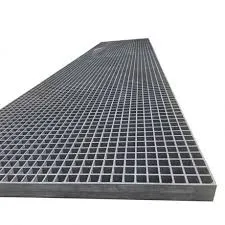
-
 Afrikaans
Afrikaans -
 Albanian
Albanian -
 Amharic
Amharic -
 Arabic
Arabic -
 Armenian
Armenian -
 Azerbaijani
Azerbaijani -
 Basque
Basque -
 Belarusian
Belarusian -
 Bengali
Bengali -
 Bosnian
Bosnian -
 Bulgarian
Bulgarian -
 Catalan
Catalan -
 Cebuano
Cebuano -
 China
China -
 China (Taiwan)
China (Taiwan) -
 Corsican
Corsican -
 Croatian
Croatian -
 Czech
Czech -
 Danish
Danish -
 Dutch
Dutch -
 English
English -
 Esperanto
Esperanto -
 Estonian
Estonian -
 Finnish
Finnish -
 French
French -
 Frisian
Frisian -
 Galician
Galician -
 Georgian
Georgian -
 German
German -
 Greek
Greek -
 Gujarati
Gujarati -
 Haitian Creole
Haitian Creole -
 hausa
hausa -
 hawaiian
hawaiian -
 Hebrew
Hebrew -
 Hindi
Hindi -
 Miao
Miao -
 Hungarian
Hungarian -
 Icelandic
Icelandic -
 igbo
igbo -
 Indonesian
Indonesian -
 irish
irish -
 Italian
Italian -
 Japanese
Japanese -
 Javanese
Javanese -
 Kannada
Kannada -
 kazakh
kazakh -
 Khmer
Khmer -
 Rwandese
Rwandese -
 Korean
Korean -
 Kurdish
Kurdish -
 Kyrgyz
Kyrgyz -
 Lao
Lao -
 Latin
Latin -
 Latvian
Latvian -
 Lithuanian
Lithuanian -
 Luxembourgish
Luxembourgish -
 Macedonian
Macedonian -
 Malgashi
Malgashi -
 Malay
Malay -
 Malayalam
Malayalam -
 Maltese
Maltese -
 Maori
Maori -
 Marathi
Marathi -
 Mongolian
Mongolian -
 Myanmar
Myanmar -
 Nepali
Nepali -
 Norwegian
Norwegian -
 Norwegian
Norwegian -
 Occitan
Occitan -
 Pashto
Pashto -
 Persian
Persian -
 Polish
Polish -
 Portuguese
Portuguese -
 Punjabi
Punjabi -
 Romanian
Romanian -
 Russian
Russian -
 Samoan
Samoan -
 Scottish Gaelic
Scottish Gaelic -
 Serbian
Serbian -
 Sesotho
Sesotho -
 Shona
Shona -
 Sindhi
Sindhi -
 Sinhala
Sinhala -
 Slovak
Slovak -
 Slovenian
Slovenian -
 Somali
Somali -
 Spanish
Spanish -
 Sundanese
Sundanese -
 Swahili
Swahili -
 Swedish
Swedish -
 Tagalog
Tagalog -
 Tajik
Tajik -
 Tamil
Tamil -
 Tatar
Tatar -
 Telugu
Telugu -
 Thai
Thai -
 Turkish
Turkish -
 Turkmen
Turkmen -
 Ukrainian
Ukrainian -
 Urdu
Urdu -
 Uighur
Uighur -
 Uzbek
Uzbek -
 Vietnamese
Vietnamese -
 Welsh
Welsh -
 Bantu
Bantu -
 Yiddish
Yiddish -
 Yoruba
Yoruba -
 Zulu
Zulu
Large Durable Fiberglass Tanks for Industrial and Commercial Applications
Understanding Large Fiberglass Tanks A Comprehensive Overview
In various industries, the need for durable and reliable storage solutions is paramount, especially for liquids and chemicals. Large fiberglass tanks have emerged as a popular choice due to their numerous advantages over traditional materials such as steel or concrete. This article explores the features, benefits, applications, and considerations associated with large fiberglass tanks.
What are Large Fiberglass Tanks?
Large fiberglass tanks are storage vessels constructed from fiberglass reinforced plastic (FRP). This composite material combines the strength of glass fibers with the lightweight properties of plastics, resulting in a tank that is not only sturdy but also resistant to corrosion and environmental stressors. These tanks can range in size and capacity, catering to a myriad of industries like water treatment, agriculture, chemical processing, and food and beverage storage.
Key Benefits of Fiberglass Tanks
1. Corrosion Resistance One of the standout features of fiberglass tanks is their resistance to corrosion. Unlike metal tanks that can rust over time when in contact with certain chemicals or moisture, fiberglass tanks maintain their integrity, ensuring the safety of the materials stored within.
2. Lightweight Fiberglass is significantly lighter than metal or concrete tanks. This lightweight nature not only makes transportation and installation easier but also reduces the foundational support required, offering potential cost savings in construction.
3. Durability and Longevity High-quality fiberglass tanks are designed to withstand harsh environmental conditions. They are resistant to UV rays, extreme temperatures, and physical impacts, ensuring a long service life and minimizing the need for frequent replacements.
4. Customizable Designs Fiberglass tanks can be manufactured in various shapes and sizes, allowing for customization to meet specific needs. Whether a company requires a cylindrical tank for liquid storage or a rectangular tank for dry materials, fiberglass can accommodate these requests.
5. Low Maintenance The properties of fiberglass allow for low maintenance requirements. Unlike traditional materials that may necessitate regular inspections, repairs, and painting, fiberglass tanks generally require minimal upkeep.
Applications of Large Fiberglass Tanks
large fiberglass tanks

Large fiberglass tanks are versatile and can be employed in multiple sectors
. Some prominent applications include- Water Treatment Used for the storage of treated water, chemical mixing, and as part of filtration systems. - Agriculture Ideal for storing fertilizers and pesticides, fiberglass tanks help maintain safe and effective agricultural practices. - Chemical Processing In facilities where chemicals are handled, these tanks can store acids, bases, and other corrosive substances safely. - Food and Beverage Large fiberglass tanks can be used for fermentation, storage of beverages, or as part of production processes, safely housing ingredients without contamination.
Considerations for Selecting Fiberglass Tanks
While large fiberglass tanks offer many benefits, it is essential to consider a few factors when selecting the right tank for your needs
1. Compatibility with Stored Materials Ensure that the fiberglass tank is compatible with the chemicals or liquids it will hold. Not all fiberglass varieties are suitable for every substance.
2. Regulatory Compliance Depending on the application, certain regulations may govern the type of material used for tanks. Always verify that the tanks meet local and industry-specific standards.
3. Installation and Maintenance Although fiberglass tanks require low maintenance, proper installation is crucial to avoid issues down the line. Partnering with experienced professionals can ensure longevity and reliability.
4. Cost vs. Benefit Analysis While upfront costs may be higher than traditional options, the long-term savings on maintenance and replacement can justify the initial investment.
Conclusion
In summary, large fiberglass tanks present a superior alternative for liquid and chemical storage across various industries due to their durability, resistance to corrosion, and low maintenance needs. As industries continue to innovate and seek more effective solutions for storage, the demand for fiberglass tanks is likely to grow. Understanding their benefits and applications can aid businesses in making informed decisions when investing in storage solutions.









